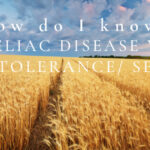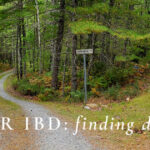GETTING YOUR POOP TOGETHER
It’s time to get real. When was the last time

SHOULD YOU TRY A RESTRICTIVE DIET? Are you sensitive to certain foods and wonder if eliminating foods from your diet might help? A restrictive diet can certainly help reduce symptoms sometimes, but they can also have unintended consequences such as nutrient deficiencies and disordered eating. As such, restrictive diets should be used judiciously and ideally on a short-term basis. This month I’m breaking down restrictive diets and helping you determine when and if it is something to explore. If you are considering
WHEN A THERAPEUTIC DIET MIGHT BE NECESSARY Therapeutic diets have been used for decades to manage various health conditions, especially gastrointestinal (GI) disorders. Although therapeutic diets can be beneficial for many patients, they must be used judiciously to avoid the risk of disordered eating, particularly in children. As a naturopathic doctor specializing in gastroenterology, I recognize the importance of using therapeutic diets for short periods of time to reduce symptoms and then gradually expanding the diet as symptoms improve. One important
FIVE THINGS TO KNOW ABOUT IBD Inflammatory bowel disease (IBD) is a chronic condition that affects the gastrointestinal (GI) tract. Here are five important things you should know about IBD: IBD affects millions of people worldwide: IBD is a global health issue, with an estimated 3 million people affected in the United States alone. The condition is found in people of all ages, although it is most commonly diagnosed in young adults between the ages of 15 and 35. (SOURCE) There are two

9057 Greenwood Ave N Ste C205 Seattle, Washington 98103
206-643-2239
206-299-4361
staff@pnwintegrativemed.com

It’s time to get real. When was the last time

Have you noticed a burning sensation in your esophagus or

As a naturopathic doctor with a specialty in gastroenterology I

UNDERSTANDING THE DIFFERENCE BETWEEN CELIAC DISEASE & WHEAT INTOLERANCE /

For those who have chronic bowel discomfort and have not
Tuesday 10:00 AM - 5:00 PM
Wednesday 10:00 AM - 5:00 PM
Thursday 10:00 AM - 5:00 PM
Monday 8:00 AM - 4:00 PM
Tuesday 8:00 AM - 4:00 PM
Wednesday 8:00 AM - 4:00 PM
Thursday 8:00 AM - 4:00 PM
Friday 8:00 AM - 4:00 PM
Designed by AMOR © 2024 All Rights Reserved